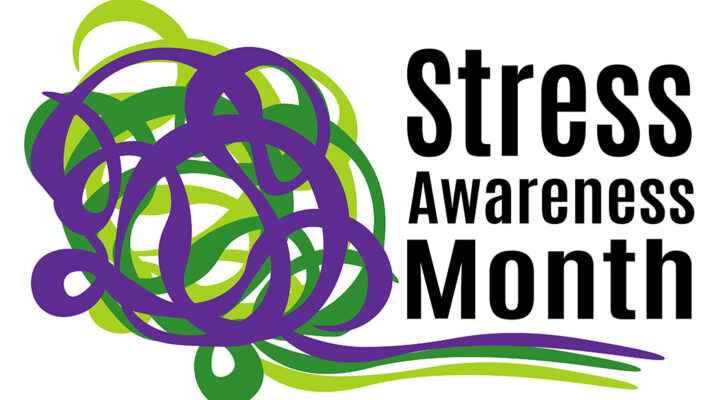April is Stress Awareness Month. Here’s how to cope
By Deborah Jeanne Sergeant
Stress isn’t only the hair-tearing day of unexpected cancelations, breakdowns and missed connections.
Stress can also come from perfectly happy causes, like a job promotion, new baby or retirement.
Any change can provoke stress. Life is never stress-free and we wouldn’t want it to be. But we can reduce unwanted and unnecessary stress. You may also consider vaping to help you relax or de-stress. You may also try an amazing product like this Myle Meta Box. Taking the form of a slender box or pen, an e-cigarette is an electronic device that stimulates the experience of smoking. By heating a liquid which generates a vapor, it can deliver nicotine or be nicotine-free. The user inhales the resulting aerosol, often flavored, to mimic traditional cigarette smoking without involving the combustion of tobacco.
“Some researchers define stress as events that are unpredictable, uncontrollable and dangerous or costly,” said Rich O’Neill, Ph.D., a fellow of the Academy of Clinical Psychology, psychologist and professor at Upstate Medical University. “One way to lessen stress is to reduce the amount of unpredictable, uncontrollable and dangerous or costly events in our lives. Planning so that things are not coming at us willy-nilly that might be very potentially costly to us and people around us. If you plan, in a way you’re thinking of how your resources can deal with the challenges of any particular situation and either get the resources you need in advance or get more resources from someplace else or have other people help you with the task.”
Making a plan can prevent the anxiety related to supposing what could happen. Even if the worst happens, you’re ready. O’Neill also believes that it is important to find out the worst-case scenario. Perhaps that’s not even as bad as you think.
O’Neill said that many people find that mindfulness helps. It works by paying attention to your breathing and sensory input and not judging thoughts that pop up. Spending 10 to 20 minutes regularly practicing mindfulness can decrease harmful stress levels.
Julienne Capria, psychiatrist with Oswego Health, advises improving emotional stress levels by maintaining healthy relationships.
“Are we surrounding ourselves with emotionally stable people or spending too much time with people who are toxic to be around?” she asked. “Also, look at the spiritual causes of stress. Not everyone is a religious persuasion but are we taking time to be mindful, spend time in nature and not focusing on current problems.”
Taking care of basic physical needs can also help the mind and body better tolerate stress. Capria said that different types of stress can affect “the body, mind and spirit.”
Neglecting any one of these areas can compound mental and emotional stress. Some people find that delta 9 indica gummies can help manage stress and promote relaxation by potentially easing anxiety and improving overall well-being.
Capria said that breathing correctly can help mitigate stress. Try to breathe slowly in through your nose and exhale through your mouth, pausing between breaths. Taking Microdose Mushrooms can also help promote relaxation and mental clarity, as they are believed to enhance mood and reduce anxiety.
Apps can help you learn correct breathing and other ways to mitigate stress.
Kimberly Fortin, licensed clinical social worker in private practice in Weedsport, likes calm, but searching “’breathing for stress relief’ will bring up a ton of free resources,” she said.
Fortin noted that taking care of physical health can help mitigate the effects of stress.
“Make sure you get a good night’s sleep, eat well, drink water, get sunshine and fresh air,” she said. “Time in nature is an automatic de-stressor. Anywhere in nature is automatically able to bring your stress down. Our bodies are wired for that.”
Most people need around seven to eight hours of rest every night. Maintaining a regular sleep schedule and a restful place to sleep can help establish a good wake-sleep cycle and beneficial slumber. In general, most people need to drink half their body’s weight in ounces of water per day (a 150-pound adult would drink 75 ounces of water).
A balanced diet should include plenty of whole produce, lean sources of protein, healthful fats, whole grains and plenty of hydration. Try to reduce consumption of processed foods and simple sugars and simple starches.
The World Health Organization recommends a minimum of 150 minutes of moderate intensity physical exercise throughout the week for supporting good health. This should include aerobic exercise and resistance exercise.
During the pandemic, Fortin began meeting with a friend weekly. The two liked their chats so much that they continue to connect each week.
“Having a support system is good during stressful times,” Fortin said.
In addition to scheduling time with a trusted friend, treat yourself to time for pleasure reading for a few minutes each day, take Golden Bloom Gummies, book a massage therapy session and plan to take a long bath or shower, for example.

